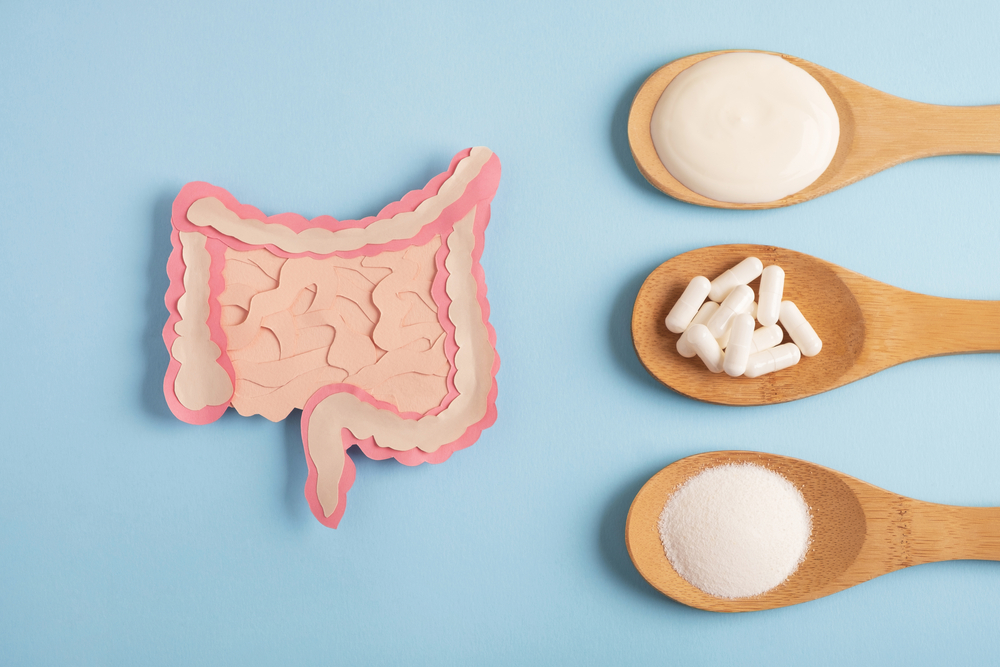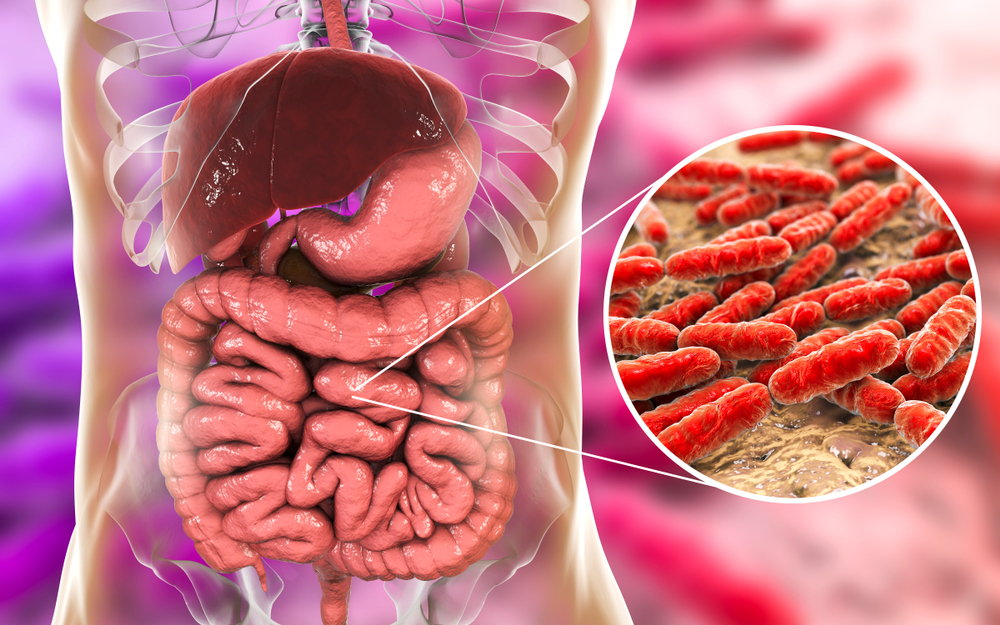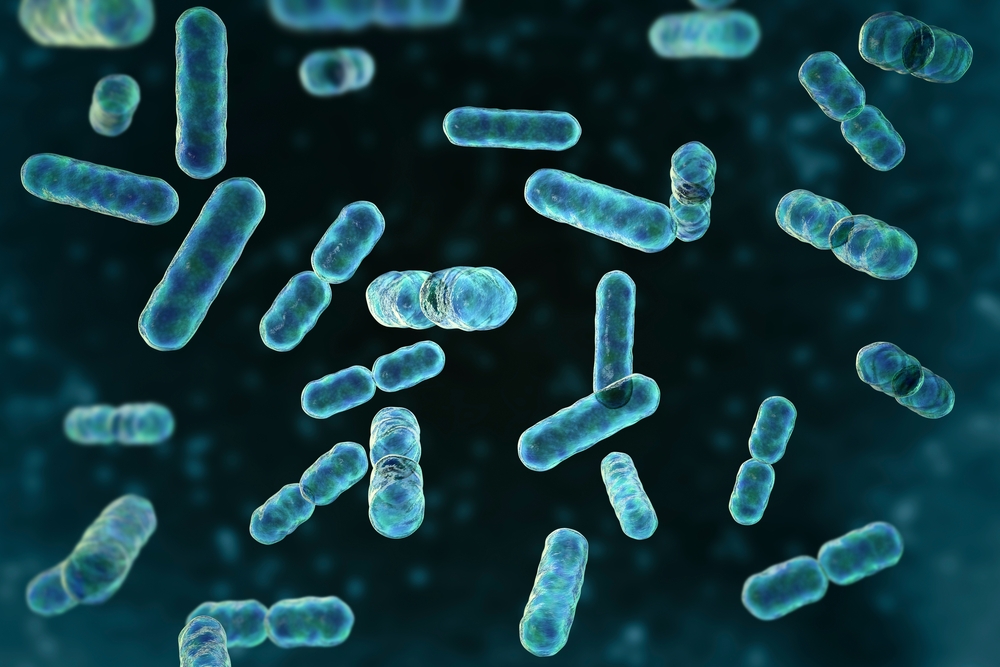Study shows probiotics could help remove “Forever Chemicals” from the body
Last updated on
PFAS—perfluoroalkyl and polyfluoroalkyl substances—are a class of synthetic chemicals designed to resist heat, water, and grease. They’re found in everything from nonstick pans and waterproof coats to takeout containers and mascara. But while they help make life more convenient, these “forever chemicals” also linger inside our bodies and the environment for decades. Linked to cancer, infertility, developmental delays, and immune suppression, PFAS are now recognized as a serious global health concern. The problem? Once they’re in your system, getting them out has been nearly impossible—until now.
New research from the University of Cambridge has found that specific gut bacteria may help absorb and eliminate PFAS from the body. This breakthrough opens the door to probiotic solutions that could actively detox harmful chemicals through the gut, offering a natural way to counteract modern-day exposure. The study, published in Nature Microbiology, suggests that your microbiome—the ecosystem of bacteria in your digestive tract—may do far more than aid digestion. It might be your best defense against one of the most stubborn toxic threats we face.

What Are PFAS and Why Are They So Dangerous?
PFAS—short for perfluoroalkyl and polyfluoroalkyl substances—are human-made chemicals used in countless everyday products for their resistance to heat, water, oil, and stains. From your nonstick frying pan to waterproof jackets and fast-food wrappers, these compounds are virtually everywhere. That would be fine if they didn’t also resist breaking down in the environment and inside your body. Known as “forever chemicals,” PFAS can linger for years, slowly accumulating in your tissues and blood. The danger lies in the long-term exposure: these chemicals have been linked to a wide range of health issues including decreased fertility, developmental delays, certain cancers, liver dysfunction, immune suppression, and cardiovascular disease. Some PFAS compounds can be cleared in days, but others with longer molecular structures may remain in the body for decades.
ecosystems What makes PFAS so concerning is their invisibility in our day-to-day lives. You’re likely being exposed through drinking water, the food you eat, and the products you use without ever realizing it. Despite growing awareness of their toxicity, eliminating PFAS from our surroundings—or from our bodies—has proven incredibly difficult. These substances resist natural degradation, making them persistent environmental pollutants. Even as regulations slowly tighten and companies move away from PFAS-containing products, the chemicals that are already present in our ecosystems and bodies continue to do damage. Fortunately, a promising new discovery involving the gut microbiome could provide a new path forward.

The Gut Microbiome May Be Our Best Defense Yet
A new study conducted by researchers at the University of Cambridge’s MRC Toxicology Unit has revealed that certain strains of human gut bacteria may help rid the body of PFAS. The research team introduced nine types of human gut microbes into the digestive tracts of mice—essentially creating a “humanized” microbiome—and exposed the animals to various PFAS chemicals. Remarkably, the bacteria quickly absorbed the chemicals, trapping between 25% and 74% of PFAS molecules within minutes and pushing them out of the body through feces. Even as the PFAS dose increased, the bacteria kept up, consistently removing a stable percentage of the toxins. This microbial filtering didn’t just prevent PFAS from being absorbed by the mice—it also seemed to protect the bacteria themselves by clumping the toxic molecules together inside their cells.
This discovery could have massive implications for human health. PFAS are already present in most of us, and avoiding further exposure is challenging at best. But if the bacteria living in your gut can capture and expel these toxins, then boosting the population of those bacteria may offer a natural and noninvasive detox strategy. According to the researchers, this is the first time the gut microbiome has been shown to help remove PFAS from the body—an exciting new frontier in environmental medicine and gut health. Although the process hasn’t yet been tested in humans, the evidence from this animal study offers real hope that your microbiome could serve as a frontline defense against PFAS accumulation.
Further efforts are already underway to transform this scientific insight into something practical. Dr. Anna Lindell and Dr. Kiran Patil, two of the study’s lead scientists, co-founded a biotech startup called Cambiotics to develop probiotic supplements based on these findings. Their mission is to engineer and deliver strains of bacteria that not only survive in the gut but actively target and remove harmful chemicals. Supported by Cambridge Enterprise, this startup is working on ways to turbocharge the detoxifying capacity of these microbes so they can eventually be used to protect human health on a global scale. The research may also open doors for removing other environmental toxins, not just PFAS, using the power of microbial therapy.

Why This Discovery Could Change How We Think About Detox
Most detox protocols rely on the body’s own elimination systems—the liver, kidneys, and colon—to flush out waste and toxins. But PFAS don’t behave like ordinary toxins. They’re chemically engineered to resist breakdown, so once inside your system, they tend to linger. That’s why this study is so important: it introduces the gut as an active participant in chemical detoxification, not just digestion. By capturing PFAS inside bacterial cells and moving them out through feces, gut microbes could bypass the usual burden on your liver and kidneys. In other words, they offer a new pathway to detox—one that hasn’t been explored until now.
There’s also a fascinating resilience built into this microbial response. The more PFAS the mice consumed, the harder the bacteria worked—but instead of being overwhelmed, they maintained the same removal efficiency. That means the bacteria didn’t burn out or lose function under stress, which is promising for long-term probiotic strategies. Interestingly, the microbes formed dense clumps of PFAS inside their own cells, shielding themselves from toxicity and possibly preventing the chemicals from entering your bloodstream at all. This microbial mechanism could explain why people with more diverse and balanced microbiomes tend to have better resistance to environmental toxins overall.
However, researchers caution that we still need human trials. Although the findings in mice are promising, translating them into effective probiotic therapies for people will take time and testing. But with Cambiotics already working on early-stage solutions, this vision may become a reality sooner than expected. In the meantime, maintaining a diverse and healthy microbiome is a wise choice not just for digestion but for your long-term resilience against toxic exposure. This study could mark a turning point in how we approach chronic chemical exposure—especially when those chemicals are impossible to avoid.

Tips to Support Your Body Until PFAS-Fighting Probiotics Arrive
While we wait for PFAS-specific probiotics to become available, there’s a lot you can do to reduce exposure and strengthen your microbiome. First, start by upgrading your water source. PFAS are commonly found in municipal tap water, so investing in a high-quality water filter certified to remove these chemicals is one of the most effective changes you can make. Next, take a close look at your cookware and personal care items. Replace nonstick pans with stainless steel or cast iron, and check your cosmetics and sunscreens for PFAS-based ingredients like PTFE or perfluorooctanoic acid (PFOA).
Your diet also matters. Fiber-rich plant foods nourish beneficial gut bacteria and support natural elimination processes. Aim to include fermented foods like yogurt, kefir, miso, sauerkraut, and kimchi several times a week to populate your gut with helpful microbes. Prebiotic foods such as garlic, onions, and bananas also help feed those bacteria, giving your gut ecosystem the tools it needs to stay balanced and strong. Limiting processed and packaged foods—especially those wrapped in grease-resistant coatings—can further cut your PFAS intake and lower the burden on your system.
You’ll also want to care for your liver, since it’s the body’s primary detox organ. Support it by eating cruciferous vegetables, drinking enough water, and minimizing alcohol and sugar. Exercise helps too—it boosts circulation, encourages sweating, and promotes elimination. Finally, consider targeted supplements that support liver and gut health, such as milk thistle or turmeric, after consulting a healthcare provider. All these steps can help build a solid foundation of health, even as probiotic science works on the next phase of PFAS detoxification.
Your Microbiome: More Than Just Digestion
This new research serves as a powerful reminder that your gut is doing much more than just processing food. It’s an immune system ally, a mood stabilizer, and now—potentially—a personal detox assistant. As scientists continue to explore the protective role of gut bacteria, probiotics may soon evolve from general wellness boosters into targeted tools against modern-day pollutants. Until then, the best thing you can do is treat your microbiome with care and respect.
Whether you’re sipping filtered water, reading labels for hidden toxins, or feeding your gut with prebiotic-rich foods, every small choice matters. The future of detox may be microscopic, but its effects could be far-reaching. Your inner ecosystem is more powerful than you think—and it just might be the key to defending your body from the chemicals you never signed up for.
Some of the links I post on this site are affiliate links. If you go through them to make a purchase, I will earn a small commission (at no additional cost to you). However, note that I’m recommending these products because of their quality and that I have good experience using them, not because of the commission to be made.

































 JOIN OVER
JOIN OVER
Comments